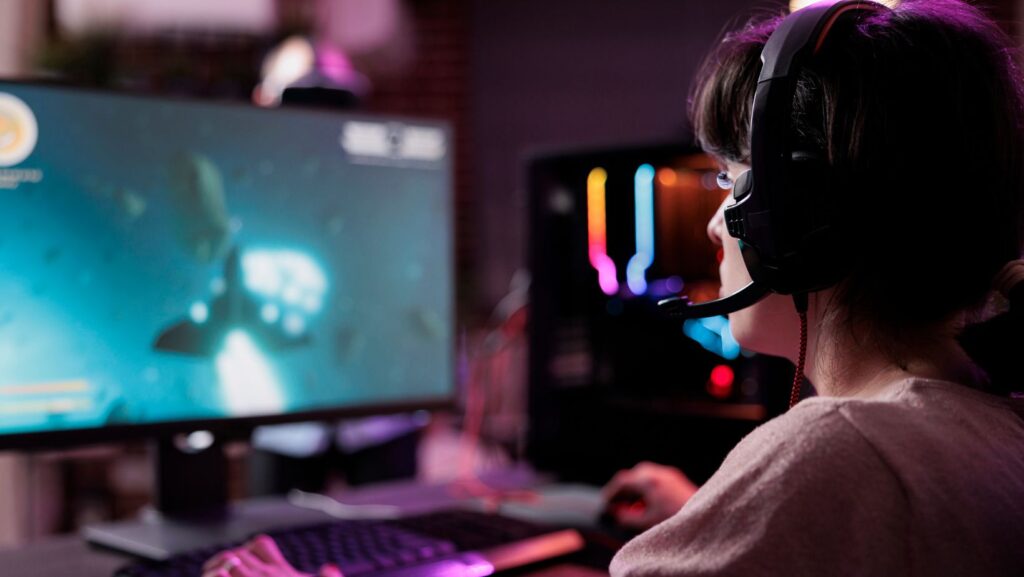
Can playing video games improve your mind? This is something many people think about. Some say games are only for fun, but many players already know that games can do more than just pass time. If you enjoy video games, there’s a good chance you’re also building skills without even trying hard. From getting better at making decisions to finding new creative ideas, video games can do a lot for your mind.
Let’s talk in simple words about how video games can actually help you in daily life, studies, and even work.
How Video Games Build Useful Skills Without Stress
One nice part about video games is that they teach you things without making it feel like a lesson. You’re just playing and having fun, but inside the game, you are making smart moves, handling new challenges, and finding clever ways to win. These moments slowly build different skills you can use in real life.
Quick Thinking and Fast Decisions
Most slot gacor games need fast thinking. You can’t take five minutes to plan your next move in action games. You learn how to decide quickly and smartly. This helps you even outside games, like when solving small problems or making everyday choices without delay.
Better Hand and Eye Coordination
When you play games with a controller or keyboard, your hands and eyes start to work better together. You get better at reacting quickly, and your fingers move faster with more control. This can help in many other areas, from driving to sports to typing.
Improved Memory and Planning
Some games need you to remember maps, patterns, or small details. You also have to plan before doing something. Slowly, you get better at keeping these things in your mind. So your memory improves without much pressure.
How Video Games Help You Focus for Longer Time
It’s easy to lose focus when doing boring tasks. But with video games, people sit for hours and stay fully into it. That’s because games are built to hold your attention in a simple way. And once your brain gets used to that focus, you start applying it to other things, too.
Attention to Small Details
In many games, small things matter. A tiny clue, a color change, or a sound can help you win or reach the next level.

You slowly train your brain to notice more things. This helps in real life when reading, writing, or working.
Staying Calm Under Pressure
Games often put you in quick and busy situations. Your heart may race, but still, you manage to stay calm and focus on your next move. This is a very helpful habit. In real-life situations like exams, work tasks, or meetings, this calm thinking helps a lot.
Focus Practice-Without Boredom
Let’s be honest, nobody likes boring work. But with video games, you’re focusing without feeling bored. This regular habit builds mental strength and helps you stay on one task longer, even when you do other things later, like studying or working.
How Video Games Spark Creative Thinking
Creativity is not only for artists or musicians. Everyone needs fresh thinking to solve problems or try new ideas. Video games help you think like that in a simple and fun way. From building your own world in sandbox games to solving puzzles in logic-based ones, you’re using your brain in new ways.
Trying New Ways to Solve Problems
Games don’t always have just one way to win. You try different paths, test new ideas, and learn what works. This habit of trying different things helps in your real life, too. It makes you more open to ideas and ready to try smart tricks when something doesn’t work.
Creating and Building New Things
Some games allow you to create your own things — like buildings, levels, characters, or stories. This kind of play grows your imagination. You start thinking about design, style, and how things work together. Slowly, your creative mind gets stronger and more active.
Story-based games Help with Imagination
Games with stories are like interactive books. You get involved in the plot, follow the characters, and make choices that affect the ending. This improves your thinking and makes you better at imagining scenes, understanding people’s feelings, and even writing or storytelling.
Why Parents and Teachers Can Feel Good About It
Many parents worry about games, but now, things are different. Not all games are just for fun. Some are helpful for learning. When used properly, games can be a good activity that helps kids and even adults in their learning path.

Even teachers now use game ideas in classrooms to make study more interesting. Some apps are built like games so students can learn math, science, or history while having fun.
And let’s not forget — games also bring people together. Playing with friends, cousins, or family members creates good memories and helps with social bonding.
A Fun Way to Keep Your Mind Active
The best part is that all of this happens while you’re playing. You don’t need to read a big book or sit through a serious class. You play a game, enjoy it, and you still get something useful out of it.
Video games are fun, yes, but they’re also full of small hidden benefits. They help you grow without pressure. They keep your brain sharp and your mood fresh. And they can even make you feel more confident when solving problems or trying something new.
Final Thoughts
If someone tells you video games are just time passed, now you know the full story. They do more than people think. Playing the right kind of games helps you think better, focus longer, and come up with fresh ideas. So, if you love playing video games, keep going. It’s not just fun — it’s useful too.
Play smart, play balanced, and enjoy the small wins that come with each level. You never know how much your brain is picking up while you’re having a good time with your favorite game.